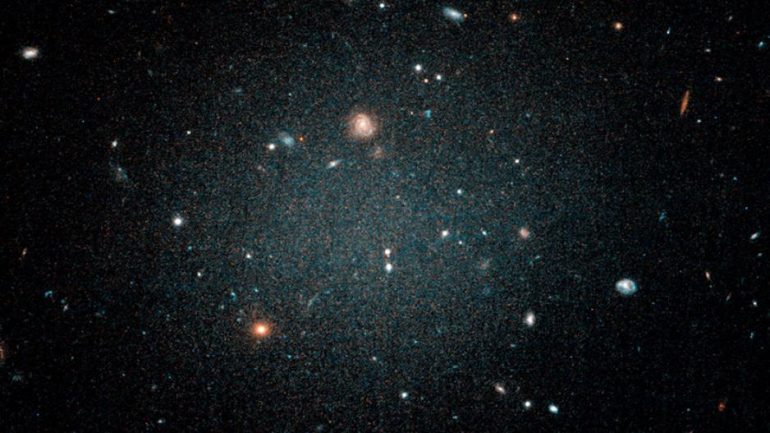Galaxies and dark matter go hand in hand, as you can not find one without the other - so far at least. But for the first time, astronomers have found a galaxy that appears to have almost no dark matter, which they described as "shocking", as it was completely unexpected. Given that the universe is dominated by dark matter, which is much more (up to 85% of all matter in the universe) than visible baryon matter, and that dark matter is the foundation that holds galaxies together , the discovery is considered really important.
The most unusual galaxy is NGC1052-DF2, 65 million light-years from Earth. It is about the size of our own galaxy, but only one hundredth of its stars, while -unlike ours- it does not have a black hole in its center.
The galaxy was studied by many telescopes (Gemini and Cake Hawaii, space Hubble, etc.) to cross-reference the results. The researchers, led by Peter van Dokum of Yale University in the United States, published the article in the journal Nature.
"Finding a galaxy without dark matter is unexpected, because this invisible mysterious substance is the most dominant aspect of a galaxy," Docum said. "For decades we thought galaxies always start their lives as agglomerations of dark matter. Then everything else happens: gas falls into the halo of dark matter, the gas turns into stars, they slowly grow, until in the end galaxies like ours appear. But NGC1052-DF2 calls into question the dominant ideas for the formation of galaxies.
"If there is any dark matter in this galaxy, it will be minimal. "Its stars are enough to explain all of its mass and there does not seem to be any extra space for dark matter." On the other hand, as he said, "this shows that dark matter is separate from galaxies. It's real, but it has its own distinct existence from the other components of galaxies. "
In other words, the question arises: if a galaxy did not start with dark matter, which then gravitationally attracted common matter, then how did it form?
Scientists have said that "a galaxy is an absolute mystery, which is not predicted by any theory, everything on it is strange. "It's completely unknown how such a galaxy could form." They no longer rule out that there are probably more ways to create a galaxy than just starting from a dark matter nucleus. Astronomers will be looking to find other such galaxies in the universe. They already have suspicions about three, whom they will notice better.
